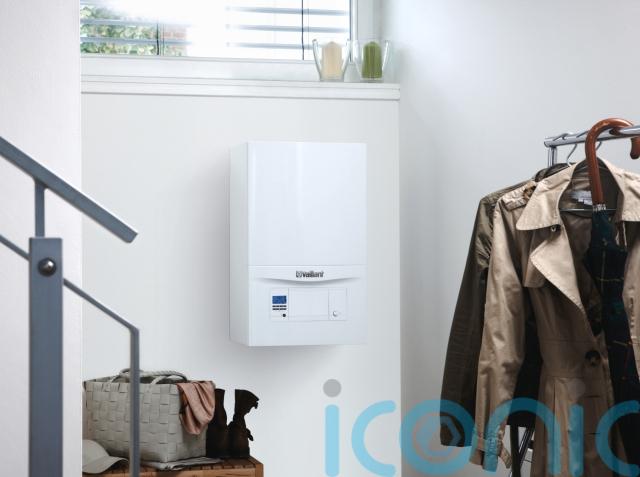
Having a well-insulated home with an efficient heating system is very reassuring, especially in the depths of winter when you’re dreaming of a hot shower.
But come springtime, it’s not always top of your checklist when moving into a new home – and focusing on giving your space a glow-up.
After all, you might be asking yourself: Is boiler maintenance worth the spend?
“Your boiler is the heart of your home’s heating system, and neglecting it can lead to costly repairs, increased energy bills, and even safety risks,” cautions Calvin Bannan, founder of CB Services, one of Scotland’s leading heating and plumbing firms.
Regular boiler maintenance is essential because it not only prevents costly breakdowns and extends the system’s lifespan, says Bannan, but also helps you save money by avoiding expensive repairs.
Here’s how to keep your boiler running smoothly with his expert tips…
Book an annual service
“Think of your boiler like a car – regular servicing helps keep it running efficiently for longer,” advises Bannan. “A well-maintained boiler can last 10-15 years, unlike a neglected one.
“Without regular checks, minor issues can turn into expensive breakdowns, often requiring emergency call-outs that cost hundreds of pounds,” underlines the heating and plumbing expert.
“Investing in routine maintenance saves you from unexpected bills in the future.”
Stay safe from carbon monoxide risks
“Boilers that aren’t serviced regularly can develop faults, including dangerous carbon monoxide leaks,” warns Bannan.
“This odourless, deadly gas can be fatal if undetected – regular maintenance ensures all components are properly sealed and functioning safely, giving you peace of mind that your home is protected.”
Of course, you should never have a boiler installed without also having a carbon monoxide alarm, underlines Bannan. These have a sealed battery, and once the battery has reached the end of its life, it will make a beep to notify you it needs replacing, he explains.
“They also have an expiration date on them, so be sure to check the date it was installed and replace when necessary.
“Remember all CO [carbon monoxide] alarms must be installed between 1m and 3m horizontally; 300mm from any wall as high as possible (above all doors and windows) and not within 150mm of your ceiling,” he adds.
Reduce energy bills through better efficiency
An inefficient boiler must work harder to heat your home… using more energy and costing you more money, notes Bannan.

He says regular servicing ensures all parts are clean and operating at peak efficiency, potentially saving on your heating bills.
Modern boilers make maintenance easier by including features such as LED display reminders and smart apps that notify homeowners when a service is due, highlights Bannan.
“These small additions can help you stay on top of maintenance without the hassle of remembering dates yourself.”
What you can do to maintain your boiler
While a Gas Safe engineer should handle professional servicing, Bannan says there are a few things you can do yourself to keep your boiler in good condition…
Monitor boiler pressure: “Check the pressure gauge regularly – it should read between 1-1.5 bar when cold. If the pressure keeps dropping or is too high, it’s a sign something might be wrong.
“You can easily top up the pressure on your boiler yourself – there are plenty of videos on YouTube which will show you how to do this, or ask your heating engineer to show you at your next annual service.”
Bleed your radiators: “If your radiators have cold spots at the top, trapped air is preventing them from heating properly,” advises Bannan.

“Use a radiator key to release the air, but remember to check your boiler pressure afterwards – bleeding radiators can cause a drop in pressure, which might shut your boiler off.
“Always bleed your radiators when they’re cold to help prevent scolding – steam and hot water will come out if you bleed them when hot.”
He says you’ll also need to make sure your floor or carpet is covered, and that you have a bucket to catch any excess water – and a rag to catch drips.
Watch for leaks or drips: “Inspect your boiler, pipes, and valves for any signs of water. Even small leaks can indicate bigger problems, so don’t ignore them.”
Keep the area around the boiler clear: “Good airflow is essential for efficient operation,” underlines Bannan. “Avoid storing items around your boiler to ensure it can function properly, and be easily accessed for inspections.”
When to call a Gas Safe-registered engineer
Some boiler issues require professional attention and knowing when to call an engineer is crucial…

Firstly, make sure to schedule an annual service before winter, ideally around the same time your boiler was installed, to ensure it’s working efficiently for the colder months, advises Bannan.
“If you notice any leaks, even minor ones, it’s important to address them quickly, as they can lead to significant water damage and system failure.”
Another red flag is when your boiler pressure keeps dropping despite regular top-ups, forewarns Bannan, which likely means there’s a leak that needs professional inspection.
“If you’re experiencing uneven heating in your home, where some rooms remain colder than others despite bleeding the radiators, your system might require a power flush to remove built-up sludge,” suggests Bannan.
Lastly, if an error code appears on your boiler’s display, he says a quick Google search can usually help determine whether it’s a simple pressure issue; or something that requires an engineer’s expertise to fix.
Subscribe or register today to discover more from DonegalLive.ie
Buy the e-paper of the Donegal Democrat, Donegal People's Press, Donegal Post and Inish Times here for instant access to Donegal's premier news titles.
Keep up with the latest news from Donegal with our daily newsletter featuring the most important stories of the day delivered to your inbox every evening at 5pm.